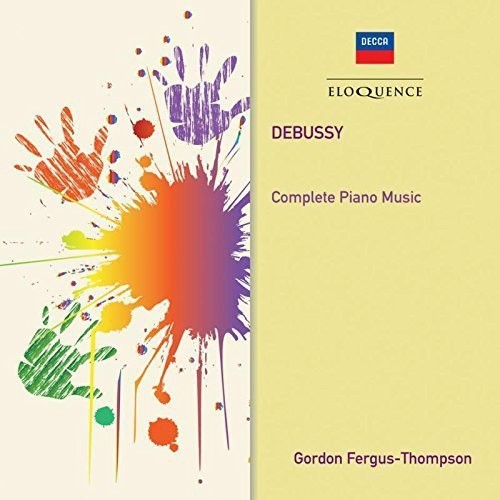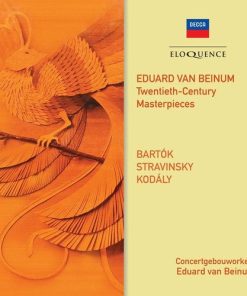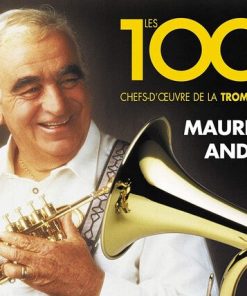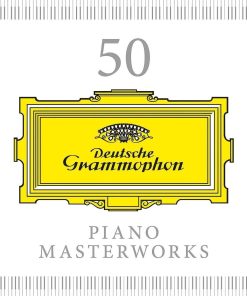DEBUSSY: SOLO PIANO MUSIC – FERGUS-THOMPSON (4 CDS) DECCA
$ 26,99 $ 16,19

For Claude Debussy, the imaginative life was real life. A musical pantheist and revolutionary, he sensed the very heart of the centre of natural phenomena, their ‘inscape’ or essence; and seeking, as he put it, to ‘express the inexpressible’, he longed to liberate music ‘from the barren traditions that stifle it’. Such fantasy and freedom combine with a no less marked love of precision and finesse to give Debussy’s music an inimitable calibre and stature.
Few overviews of Debussy’s piano music have been as consistently satisfying as Gordon Fergus-Thompson’s. Sensitively recorded, it is full of half-lights, colour and vibrancy. It won the MRA ‘Best Instrumental Recording of the Year’ and a Penguin Guide ‘rosette’ and has received rave reviews in the international press.

‘the most consistent in quality among modern editions … The pianist’s robust, colourful sonority and sensitive phrasing perfectly suit this alluring, atmospheric repertoire’ Classics Today
‘Fergus-Thompson’s range of tone colour, and control of dynamic and texture are nothing short of transcendental’ (Préludes) Julian Haylock, CD Review

CD 1
Rêverie
Suite bergamasque
Images oubliées
Pour le piano – Suite
Images – Set I
Images – Set II
CD 2
Deux Arabesques
Danse bohémienne
Ballade slave (1890)
Danse (Tarantelle styrienne)
Valse romantique
Mazurka
Nocturne
Préludes – Book I
CD 3
L’isle joyeuse
Estampes
D’un cahier d’esquisses
Morceau de concours
Masques
Préludes – Book II
CD 4
Children’s Corner
Hommage à Joseph Haydn
Le petit Nègre
La plus que lente
Berceuse héroïque
Elégie
Page d’album (Pièce pour le vêtement du blesse) (1915)
Douze Études
Gordon Fergus-Thompson, piano
Fast Shipping and Professional Packing
Due to our longstanding partnership with UPS FedEx DHL and other leading international carriers, we are able to provide a range of shipping options. Our warehouse staff are highly trained to pack your goods exactly according to the specifications that we supply. Your goods will undergo a thorough examination and will be safely packaged prior to being sent out. Everyday we deliver hundreds of packages to our customers from all over the world. This is an indication of our dedication to being the largest online retailer worldwide. Warehouses and distribution centers can be located in Europe as well as the USA.
Orders with more than 1 item are assigned processing periods for each item.
Before shipment, all ordered products will be thoroughly inspected. Today, most orders will be shipped within 48 hours. The estimated delivery time is between 3-7 days.
Returns
The stock is constantly changing. It's not entirely managed by us since we are involved with multiple parties such as the factory and our storage. The actual stock can fluctuate at any time. Please understand it may happen that your order will be out of stock when the order is placed.
Our policy is valid for 30 days. If you haven't received your product within 30 days, we're not able to issue either a return or exchange.
You are able to return a product if it is unused and in the same condition when you received it. It must also still remain in the original packaging.






















































